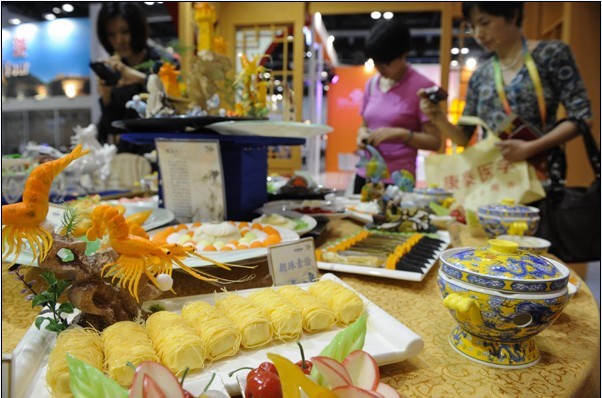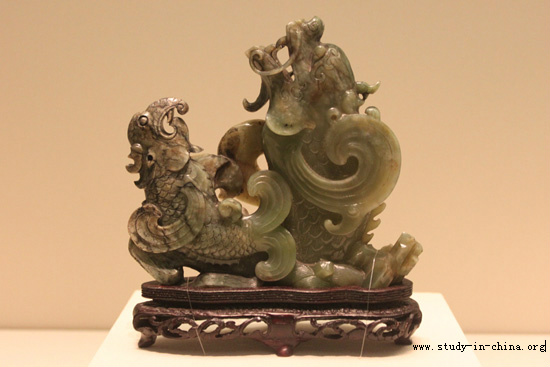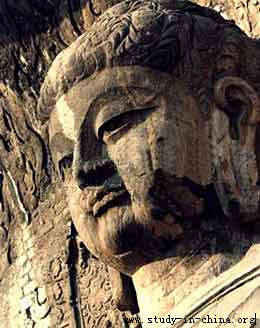| Home > China Feature |
TCM Advice for Dry Skin in Wintertime
AS the weather gets colder, our skin is the most important protective organ. Outside the house, the skin shields us from the cold, rain and wind; inside it shields us from the warm air (produced by air-conditioning) and hot water.
We expose ourselves to these extreme temperature differences during the wintertime and thereby dry out our skin. As a result, the skin feels irritated and itchy.
However, dry skin is not just a cosmetic or comfort problem. Dry skin becomes a medical issue when it splits, bleeds and doesn't heal.
Traditional Chinese medicine believes that skin problems are related not only to the influence of external factors but also to the health of the body's fluids, functions and its emotional status.
The lung is the organ which nourishes and controls the skin. The lung controls the opening and closing of the pores to regulate sweating. Our skin functions as a superficial lung in our body.
In winter, not only is the skin sensitive to dryness but also the lung should not be exposed to extensive air-conditioning. So, entering autumn and winter, we get thirstier.
If your skin is dry and has fine lines, you might have a yin (cold energy) deficiency, accompanied with a dry mouth, dry eyes and dry bowel movements.
Herbal remedies that address these internal problems can help the skin to heal from inside. The benefit of TCM treatments is that they don't just treat the symptoms of dry skin but the cause from the inside of your body. This prevents the symptoms from returning.
One of the famous ingredients in Chinese herbal remedies for dry-skin care is wolfberry (gouqi). It is the fruit of two species of box thorn. Wolfberries nourish and tone the fluids of the liver, kidneys and blood.
In Western understanding, the active substances are anti-oxidants, vitamin C, linoleic acid, thiamine, beta-carotene, riboflavin and trace minerals.
Nutritional TCM recommendations include some of the same products also considered beneficial in the West, such as avocado, olive oil, honey, pumpkin, spinach, salmon, berries, plain yogurt, walnuts and aloe juice. These foods are moisturizers from the inside and will help your digestive system stay healthy and hydrated.
Additional care advice includes showering with lukewarm water for a shorter time.
Long and hot showers can damage the skin's own protection and make it more dry and tight. Use the air-conditioning system as little as possible and keep the air fresh.
The usage of fragranced lotion and cosmetics should be reduced because it stresses the skin. Additionally, high-fat natural moisturizers (like pure coconut or almond oil) are the best. In general, drink sufficient water or herbal teas to hydrate your body from the inside.
If dry skin is a continuing problem, you may wish to contact a TCM doctor for further help.
We expose ourselves to these extreme temperature differences during the wintertime and thereby dry out our skin. As a result, the skin feels irritated and itchy.
However, dry skin is not just a cosmetic or comfort problem. Dry skin becomes a medical issue when it splits, bleeds and doesn't heal.
Traditional Chinese medicine believes that skin problems are related not only to the influence of external factors but also to the health of the body's fluids, functions and its emotional status.
The lung is the organ which nourishes and controls the skin. The lung controls the opening and closing of the pores to regulate sweating. Our skin functions as a superficial lung in our body.
In winter, not only is the skin sensitive to dryness but also the lung should not be exposed to extensive air-conditioning. So, entering autumn and winter, we get thirstier.
If your skin is dry and has fine lines, you might have a yin (cold energy) deficiency, accompanied with a dry mouth, dry eyes and dry bowel movements.
Herbal remedies that address these internal problems can help the skin to heal from inside. The benefit of TCM treatments is that they don't just treat the symptoms of dry skin but the cause from the inside of your body. This prevents the symptoms from returning.
One of the famous ingredients in Chinese herbal remedies for dry-skin care is wolfberry (gouqi). It is the fruit of two species of box thorn. Wolfberries nourish and tone the fluids of the liver, kidneys and blood.
In Western understanding, the active substances are anti-oxidants, vitamin C, linoleic acid, thiamine, beta-carotene, riboflavin and trace minerals.
Nutritional TCM recommendations include some of the same products also considered beneficial in the West, such as avocado, olive oil, honey, pumpkin, spinach, salmon, berries, plain yogurt, walnuts and aloe juice. These foods are moisturizers from the inside and will help your digestive system stay healthy and hydrated.
Additional care advice includes showering with lukewarm water for a shorter time.
Long and hot showers can damage the skin's own protection and make it more dry and tight. Use the air-conditioning system as little as possible and keep the air fresh.
The usage of fragranced lotion and cosmetics should be reduced because it stresses the skin. Additionally, high-fat natural moisturizers (like pure coconut or almond oil) are the best. In general, drink sufficient water or herbal teas to hydrate your body from the inside.
If dry skin is a continuing problem, you may wish to contact a TCM doctor for further help.

Art
 more
moreChina Beijing International Diet ...
Recently, The hit CCTV documentary, A Bite of China, shown at 10:40 ...

Exhibition of Ancient Chinese Jad...
At least 8,000 years ago, Chinese ancestors discovered a beautiful...

Longmen Grottoes
The Longmen Grottoes, located near Luoyang, Henan Province, are a tr...

Custom
 more
moreWeb Dictionary
Martial Arts
Tai Chi Master Class Held in Moscow
MOSCOW, June 15, 2016 (Xinhua) -- Students learn from Shaolin ...
Celebriting 70 years' efforts in restoring Mogao...
Work is being carried out at the restoration site of cave No 98 a...
Hong Kong Children's Symphony performs in Seattle
Under the theme of Tribute to the Golden Age, a concert featuring a ...





 print
print  email
email  Favorite
Favorite  Transtlate
Transtlate 








